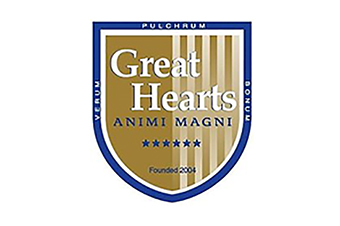If we follow the Greek etymology of the word character we find “a distinctive mark impressed, engraved, or otherwise formed.” The Greek word kharakter actually refers to the creation of coins: an “engraved mark” and also “instrument for marking.” We derive the modern word “character” from this literal meaning: a deep, etched impression. In reference to human nature, we could say the etched face of the soul.
From the classical perspective, the permanence of character was first about the excellence of the hero. Character is staying power under assault, the ability to stand firm, even under the most challenging of external pressure. For the Greeks, this especially applied to the horror of war. An engraved soul does not run away in battle. One thinks of the larger-than-life Greek warriors described in Homer’s Iliad—Ajax, Diomedes, Hector, and, of course, Achilles—who hold their ground under relentless onslaught and risk. Homer describes staying power as the greatest gift of all—an unequivocal gift from the gods.
In The Republic, Plato extends this staying power, this soul imprint, to the city-state and his concept of the guardians, those carefully chosen from among the citizens who are devoted to the polis and who can apply clear reasoning and cleave to a principle under intense pressure.
As one of the founders of Great Hearts, Dr. John X. Evans, puts it, the hero is that “great-souled person to whom people entrust their security and hope.” A hero can face and bear loss with magnanimity. As Aristotle says, “the beauty of the soul shines out when a man bears with composure one heavy mischance after another, not because he does not feel them, but because he is a man of high and heroic temper.” The hero has staying power.
So while the classical concept of character is about resolve and sacrifice, it is anything but rote obedience. The concept involves a choice, and it is no accident that we trace our understanding of character in Western Civilization back to the democracy of Athens and to the stories loved by the first free cities. Controlled behavior cannot be moral behavior if it removes the element of judgment. Character is free and liberal and, while habits of virtue are essential, forging character is different than training behavior. The question of the West—depicted beautifully in David’s Death of Socrates—is what does the free person do when confronted with the conflict between power and truth, between compulsion and conscience?
Character does not involve just saying “no” but saying “yes” to a larger truth or beauty that encompasses and surrounds the self. Character is a yes. Character involves the moral autonomy of the individual to make free decisions on behalf of what he or she loves, to make private decisions when no one is looking, to defer desire for something they find ultimately compelling. Simply put, character is when creeds have become life convictions, when integrity becomes freedom.
From the perspective of schooling, all sorts of challenges and pitfalls arise here. How can we ever hope or help our students forge an internal conviction that stands up under external pressure? How does one foster moral autonomy? How do we make the objective, subjective? What part can we, as public educators, have in something as dire and mysterious as the forging of a hero?
At Great Hearts, the culture of our academies has created the intellectual and moral conditions that seek to answer these questions, and to launch each young man or woman on a search to find his or her durable character.

